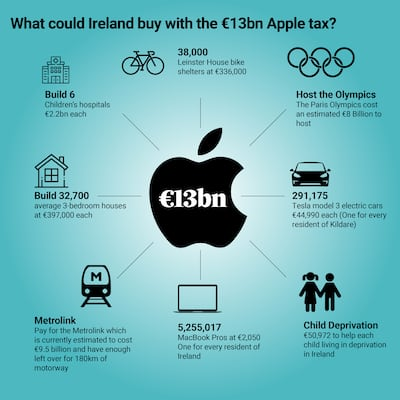The recent development of Apple tax fraud allegations has sparked significant discussions about the tech giant’s compliance with international tax laws. After a protracted investigation, Italian tax authorities announced that Apple will pay a staggering €318 million to settle claims tied to fraudulent tax practices spanning several years. This case questions the long-standing assertions made by CEO Tim Cook, who previously dismissed accusations of tax evasion as unfounded. The scrutiny follows allegations that Apple shifted a whopping $962 million in profits to Ireland, conveniently benefiting from the nation’s low corporate tax rates. As this high-profile tax settlement highlights the ongoing battle between multi-national corporations and tax regulators, it raises further concerns about the ethics of corporate tax practices in the digital age.
In the realm of corporate accountability, the issue surrounding Apple’s tax practices has become increasingly prominent. Often referred to as corporate tax avoidance, this contentious subject gained traction as Italian authorities launched an investigation into the company’s financial dealings. The settlement reached, amounting to approximately €318 million, comes on the heels of allegations that Apple has been strategically relocating profits to reduce its tax burden. Tim Cook’s claims of solid tax practices faced enormous scrutiny, given that the investigation revealed substantial discrepancies in reported taxable income. This predicament not only underscores the complexities of international taxation but also highlights the vulnerabilities companies face as governments tighten regulations to reclaim lost revenue.
The Apple Tax Settlement: What It Means for the Tech Giant
In a surprising turn of events, Apple has agreed to settle a tax dispute with Italian authorities for €318 million, following a thorough investigation into the company’s tax practices from 2008 to 2013. This settlement raises significant concerns regarding the effectiveness of corporate tax systems in Europe and the practices of multinational companies. Despite Apple’s earlier claims that it paid every tax dollar owed, this settlement suggests a different narrative, one that indicates potential tax avoidance strategies used by the tech behemoth.
This settlement not only puts a spotlight on Apple’s tax strategies but also brings into question the broader implications of corporate taxation in the modern economy. The investigation revealed that Apple allegedly shifted around $962 million in profits to Ireland, a jurisdiction known for its favorable tax rates. This practice highlights the ongoing debate about whether corporations like Apple are contributing their fair share of taxes to the countries in which they operate.
Frequently Asked Questions
What are the details surrounding the Apple tax fraud settlement with Italian tax authorities?
Apple has reached a €318 million settlement with Italian tax authorities following a two-year investigation into alleged tax fraud. The investigation scrutinized Apple’s tax practices from 2008 to 2013, focusing on claims that the company shifted $962 million of profits to Ireland to exploit lower corporate tax rates. Despite CEO Tim Cook’s assertions that Apple pays all taxes owed, this settlement raises questions about the company’s accounting practices.
How did the Apple tax investigation lead to a large settlement in Italy?
The Apple tax investigation by Italian authorities revealed that the company allegedly paid just €30 million in taxes between 2008 and 2013, highlighting significant discrepancies in their tax contributions. The resulting €318 million settlement comes after scrutiny over Apple’s practices of moving profits to lower-tax jurisdictions like Ireland, often used as a tax haven by corporations. This case underscores the ongoing challenges of corporate tax compliance and regulation.
What did Tim Cook say about the allegations of Apple tax fraud?
Tim Cook dismissed the allegations of Apple tax fraud as ‘total political crap,’ insisting that Apple pays every tax dollar it owes. His comments came amidst the fallout from a two-year investigation into the company’s tax practices. Cook’s defense emphasized the outdated nature of the U.S. tax code, which he believes is not conducive to digital-age companies like Apple.
What implications does the Apple tax fraud settlement have for corporate tax regulations?
The Apple tax fraud settlement with Italian tax authorities may signal a shift in the way multinational companies are scrutinized for tax compliance. With Apple agreeing to pay €318 million after the investigation highlighted how it moved profits to Ireland to benefit from lower corporate tax rates, it raises questions about global tax fairness and the need for reforms in corporate tax regulations to prevent similar practices.
How does Apple’s corporate tax rate in Ireland compare to that in the US?
Apple benefits from a substantially lower corporate tax rate in Ireland, which is 12.5%, compared to the U.S. corporate tax rates that can reach up to 35%. This discrepancy has facilitated Apple’s strategy of shifting profits to Ireland, leading to the current investigations and discussions around Apple’s tax responsibilities and settlement agreements.
| Key Points | Details |
|---|---|
| Agreement With Italian Authorities | Apple has agreed to pay €318 million to the Italian government following a tax fraud investigation. |
| Duration of Investigation | The investigation lasted for two years, focusing on the years 2008 to 2013. |
| Accusations | Apple was accused of shifting $962 million in profits to Ireland to avoid higher taxes. |
| Tax Contributions | During the investigation period, Apple reportedly paid only €30 million in taxes. |
| CEO’s Defense | Tim Cook defended Apple’s tax practices, claiming that the US tax system is outdated and burdensome. |
| Tax Rates Comparison | US corporate tax rates can be as high as 35% compared to Ireland’s 12.5%. |
Summary
Apple tax fraud has become a significant topic of discussion after the company agreed to pay €318 million to Italian tax authorities as a settlement for a two-year-long investigation. This incident highlights the ongoing allegations against Apple regarding its accounting practices and tax contributions, as the company has continually claimed to pay every tax dollar it owes. The context of the investigation centers on the massive profits shifted to tax havens like Ireland, raising critical questions about corporate tax fairness and responsibilities.
